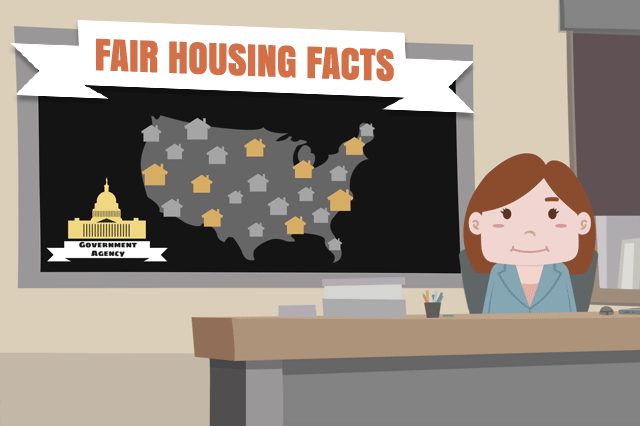The FHA Commitment to Fair Housing
February 11, 2025
This insurance reduces the risk associated with lending to borrowers who may otherwise be considered higher risk, encouraging lenders to offer more favorable terms, such as lower down payments and more flexible credit requirements.
A key element of the FHA program is its commitment to fair housing, deeply rooted in the Fair Housing Act.
The act, passed into law in 1968, prohibits housing discrimination based on race, color, religion, national origin, sex, familial status, and disability.
As a government agency, the FHA must uphold and enforce the Fair Housing Act in all its programs and operations.
The FHA's role in promoting fair housing is more than helping consumers avoid discriminatory practices. The FHA's mission includes removing barriers to housing opportunity and creating inclusive communities.
This involves educating lenders, real estate professionals, and consumers about their rights and responsibilities under the Fair Housing Act. The FHA also provides resources and support to individuals who believe they have experienced housing discrimination.
The Fair Housing Act and its Impact on FHA Lending
The Fair Housing Act is the cornerstone of fair housing law in the United States. It prohibits discrimination in selling, renting, or financing housing based on protected characteristics. The FHA plays a vital role in enforcing the Fair Housing Act and ensuring everyone has equal housing opportunities.
The following are the protected characteristics under the Fair Housing Act:
- Race: This includes discrimination based on ancestry or ethnic characteristics associated with a particular race.
- Color: This refers to discrimination based on a person's skin color.
- Religion: This protects individuals from discrimination based on their religious beliefs or practices.
- National Origin: This prohibits discrimination based on a person's birthplace, ancestry, or cultural background.
- Sex: This includes discrimination based on gender, sexual orientation, and gender identity.
- Familial Status: This protects families with children under 18 from discrimination. It also includes pregnant women and individuals seeking custody of a child.
- Disability: This prohibits discrimination against individuals with physical or mental disabilities and requires housing providers to make reasonable accommodations for them.
Lenders cannot refuse to make a loan, offer different loan terms, or deny housing opportunities based on a borrower's race, color, religion, national origin, sex, familial status, or disability. KNOW YOUR RIGHTS.

FHA Loan Articles
September 17, 2022The FHA sets these limits annually according to the location and type of home, and it represents the maximum loan amount the agency will insure. Approved FHA-lenders can set their own requirements in addition to the FHA’s criteria for borrowers, such as higher credit scores.
August 23, 2022Credit scores tend to be a source of anxiety for many Americans, because they realize the weight they hold when it comes to getting a loan for nearly anything. Taking the mystery out of this 3-digit number goes a long way to helping people understand and increasing their score.
June 16, 2022It’s a great option to consider if you want to build your dream home on your own land instead of buying someone else’s already-lived-in house. FHA One-Time Close mortgages are also referred to as single-close construction loans--you’ll see these terms used interchangeably.
May 7, 2022The appraisal process is a very important part of buying a home. When you are budgeting and planning for your loan, you may want to set aside some extra funds in case there are corrections required as the result of an appraisal.
April 12, 2022There is a major question some new borrowers have about home loans in general, that also applies to construction loans in particular. If you want to apply for an FHA One-Time Close construction loan, there are certain rules about loan funding that you should know about.







